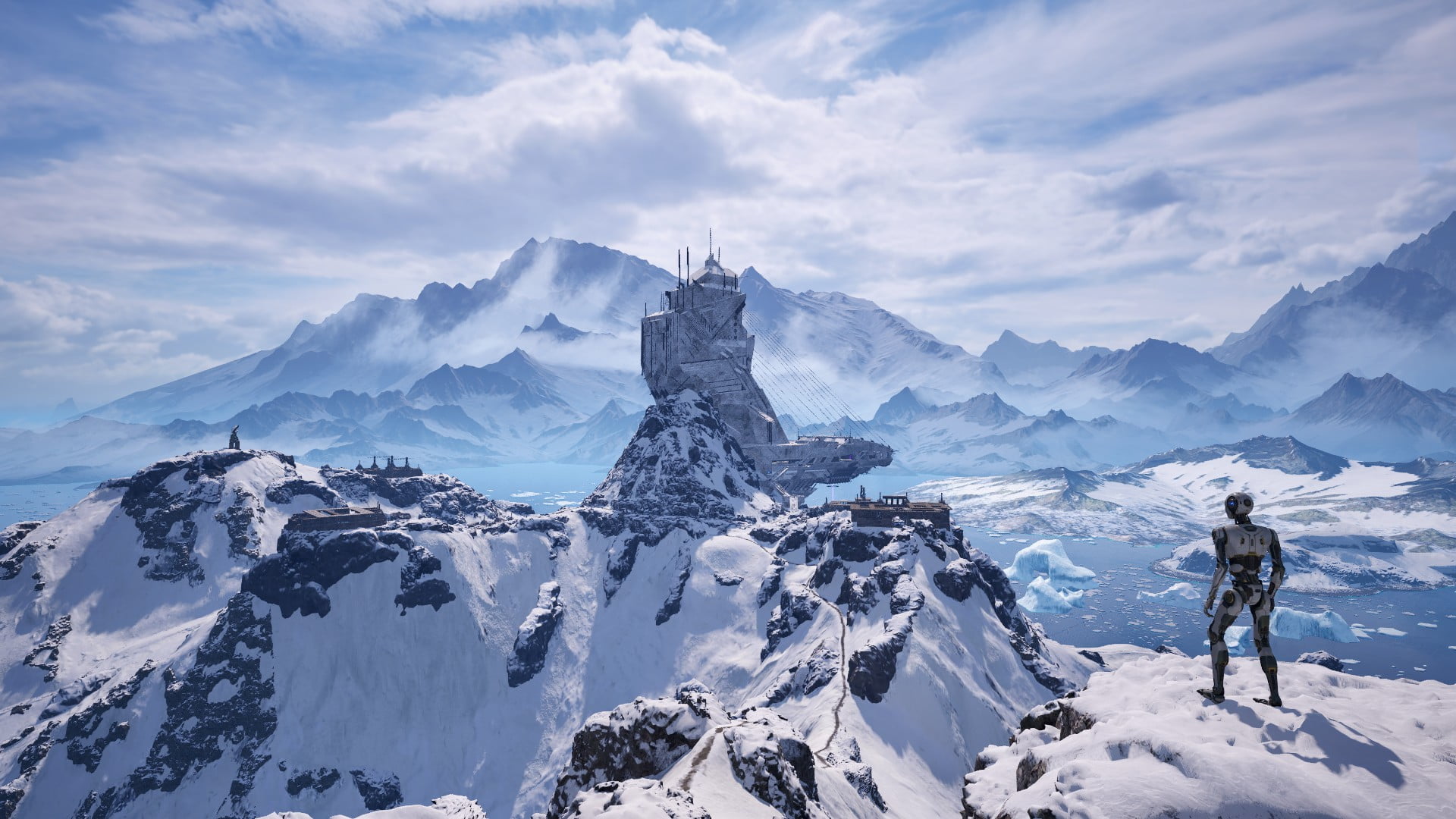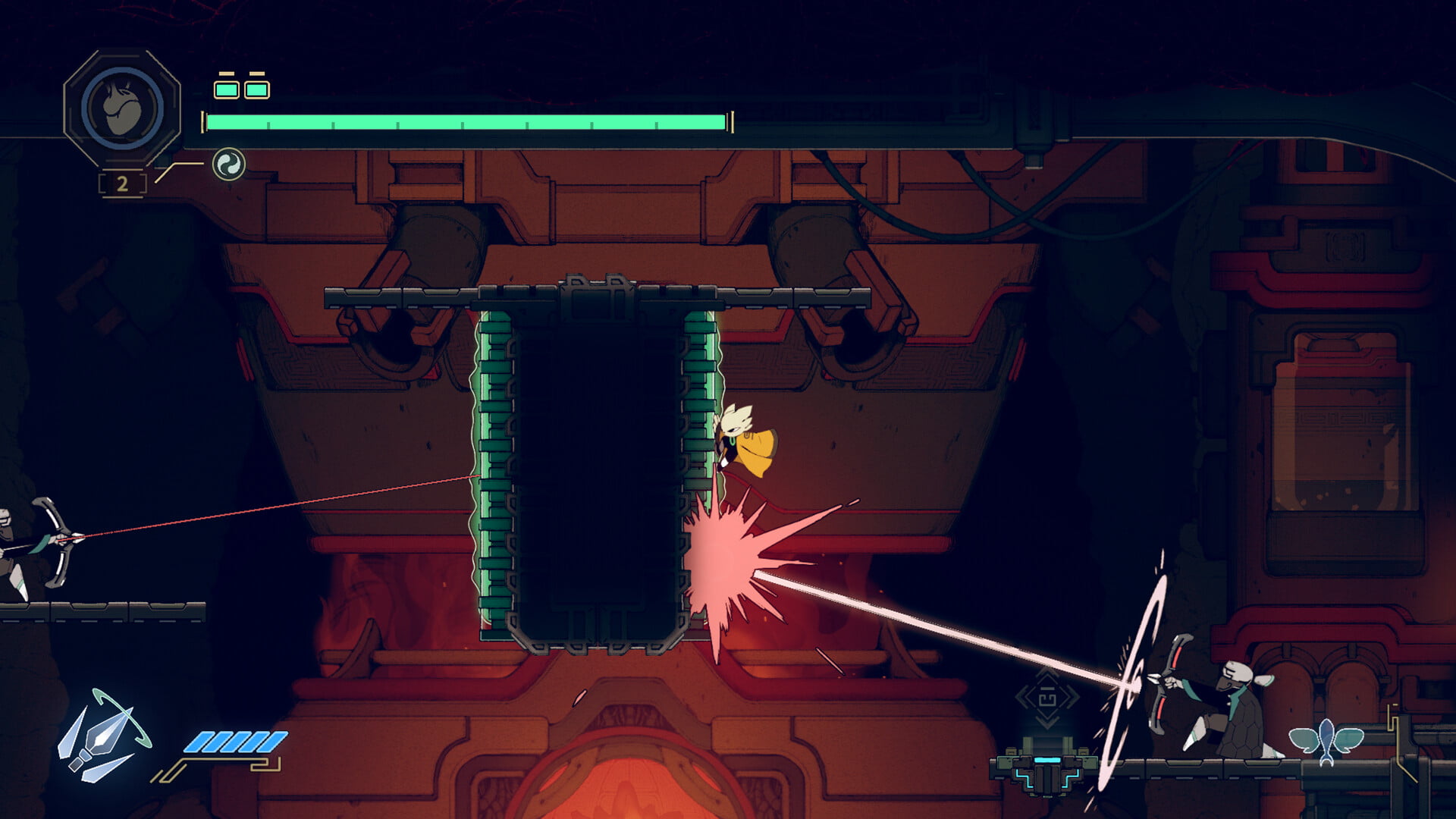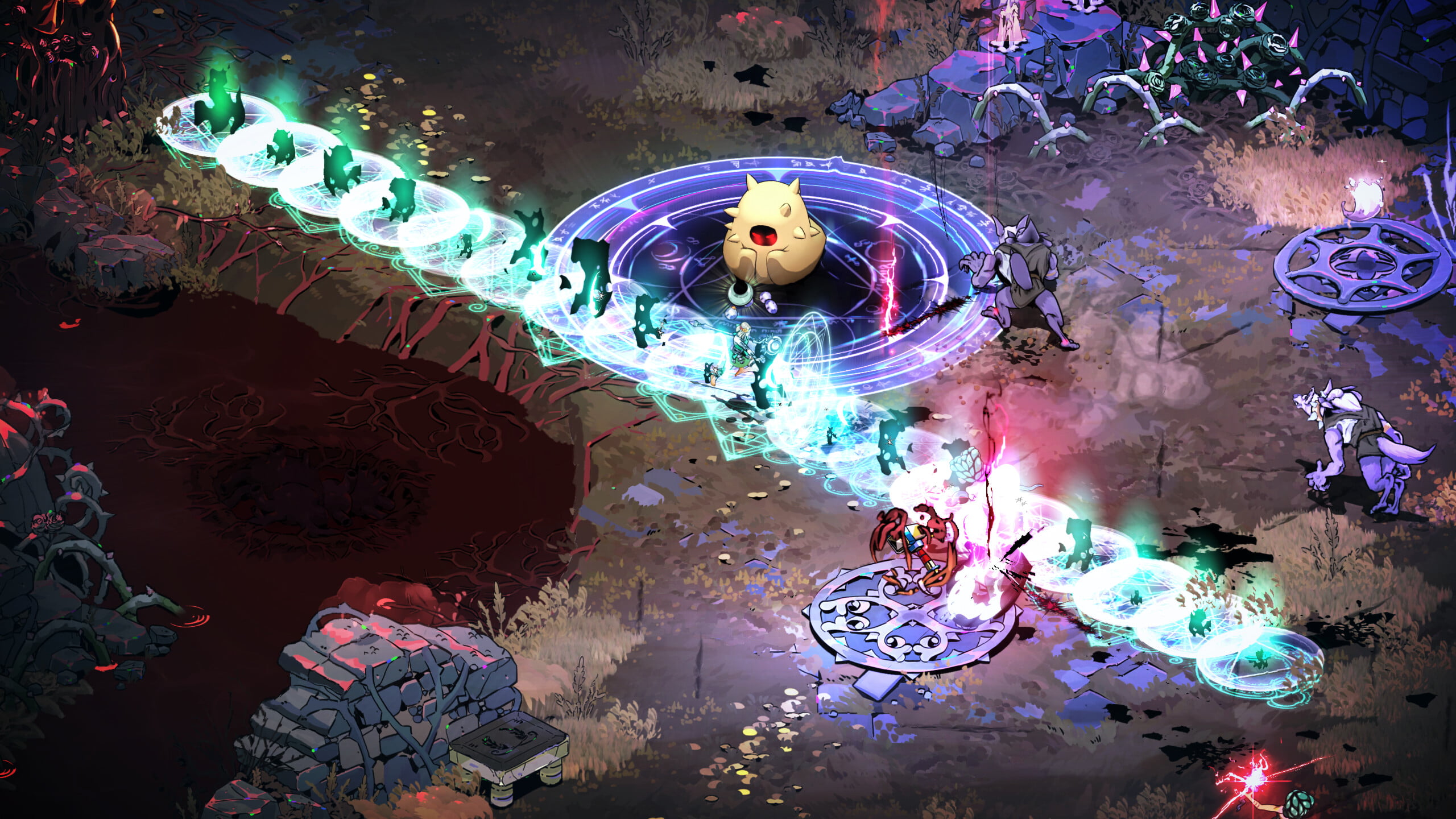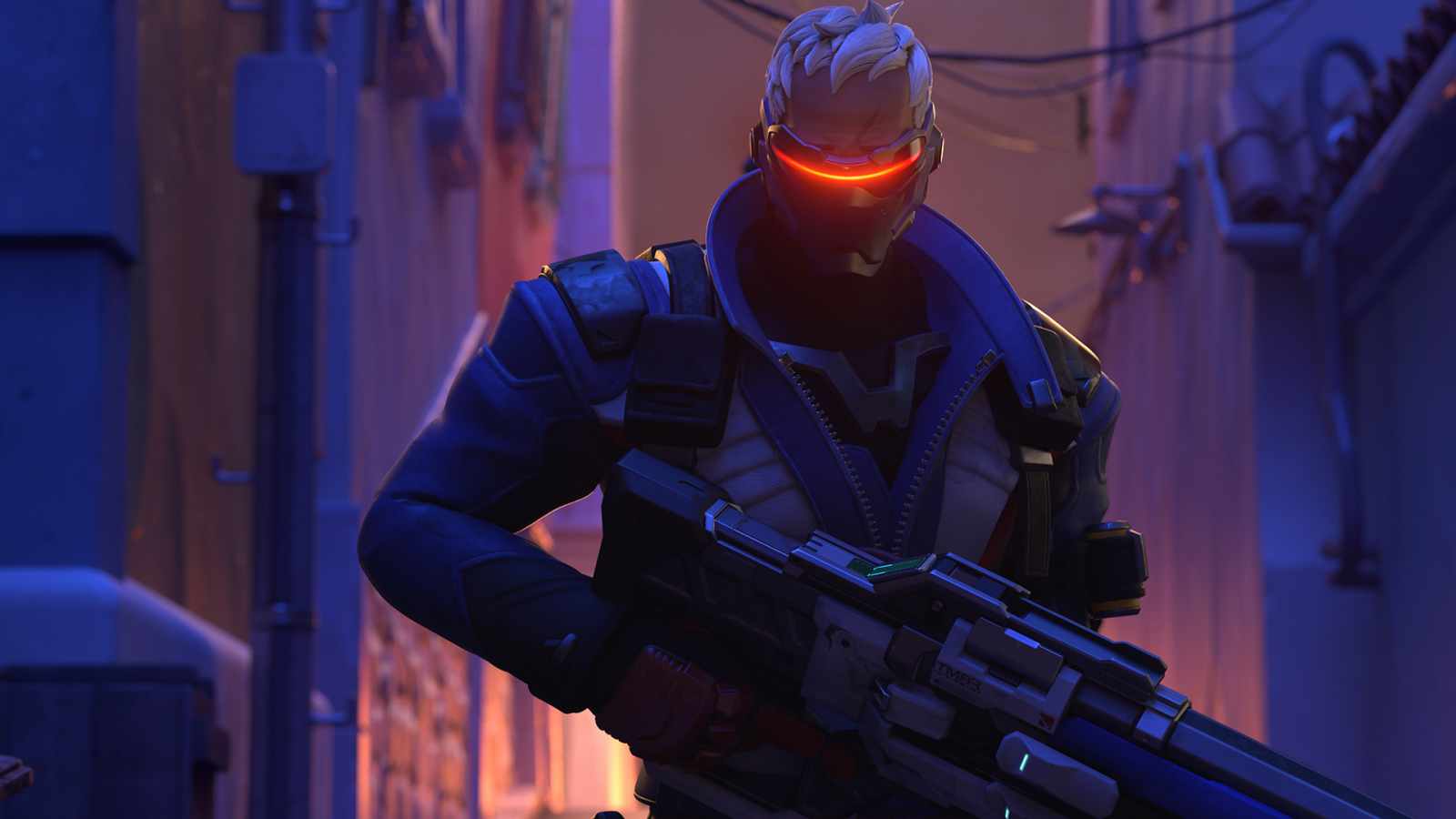It is perhaps an irony that 2023 has been one of the best years I can remember in the last decade for playing games, but it has unfortunately been a resolutely awful year for the video game industry, particularly working in it. With Microsoft finally completing its mammoth acquisition of Activision-Blizzard, a company plagued by long-running scandal, bullying and sexual abuse allegations, and almost every company making large scale redundancies, success in selling video games has not translated to success for ordinary developers and workers. Fighting for a more equitable and open video games industry is something that we will have to continue to fight for every day in the coming year.
Despite this, there were a number of games I really enjoyed in 2023, as well as some which I want to highlight for the opposite reasons. Let’s kick things off with my personal Game of the Year…
Gareth’s Game of the Year
System Shock
When I first played the original System Shock, while I could appreciate it was way ahead of its time for 1994, I struggled to get past the very dated graphics and the complicated control scheme. It was a game which showed promise, but which wouldn’t be properly realized until System Shock 2 in 1999. 29 years after release, System Shock remake has finally brought the triumph of the original to a wider audience. It is the smartest and most artful remake I’ve played, taking all of the great elements of the original and either retaining or improving on them, while sacrificing none of the complexity, style or atmosphere.
SHODAN, the deranged AI controlling Citadel Station is a truly superb villain and thanks to the new voice acting re-recorded by original actor Terri Brosius, her despotic megalomania is even more amazing. The gameplay is challenging even on standard difficulty and requires a thoughtful approach to combat, planning each encounter and taking cover where possible. The weakest element of the game is probably the Cyberspace sections where you navigate around inside the computer. It was frustrating in the original game too, and while the remake has made these levels play more like Descent, they’re still passable at best.
Since release on PC, it has generated a bit of controversy amongst players due to the lack of promised patches (which seemingly are being blocked by the publisher, on the expectation that Nightdive will work on and release the console versions first). Nonetheless, the version of System Shock you can still play right now is a remarkable achievement, and was the most memorable and fun experience I had with video games this year. Read our review.
Best Puzzle Game
Best Sequel
The Talos Principle 2
I remember when I first played the original Talos Principle how surprised I was by it. After all, it was a first-person puzzle game from Croteam, who up until that point had only really made the Serious Sam series of shooters. The first game was a wonderful mix of thoughtful philosophical story and logic puzzles, clearly inspired by Portal but using puzzles which involved different mechanics in order to solve. Plus, it had a host of easter eggs hidden around for discerning players, many of which were very entertaining.
With The Talos Principle 2, Croteam decided that they would take the original, and add more of… everything. The game is massively larger, with numerous semi-open world environments to explore alongside a huge assortment of new puzzles. The game has a much larger and more intricate story, involving NPCs populating the futuristic robotic metropolis of New Jerusalem, many of whom you can converse with as you go on an adventure to explore a mysterious megastructure. Plus, it has even more philosophy, introspection and interesting themes, trying to consider what a civilization made entirely of robots would be like. The Talos Principle 2 is not simply impressive as a sequel, but an incredible game all-round. Read our review.
Best Visual Design
Atomic Heart
Atomic Heart certainly wears its influences on its sleeve. It’s very upfront about being directly inspired by games like BioShock and Wolfenstein: The New Order, with its gameplay being a blend of both, with slower sections and more intense setpieces. Nevertheless, “Soviet-punk”, or that kind of neo-Stalinist architecture most reminiscent of buildings such as the Seven Sisters in Moscow, has been relatively absent from video games. Atomic Heart takes this aesthetic to the absolute extreme, imagining a wildly futuristic Soviet Union in an alternate 1955 where they have made enormous advances in science and technology, becoming a Communist utopia. However, this utopia quickly falls apart as all of the robots running Facility 3826 go haywire, meaning you must fight your way through the mechanised legions in an attempt to restore order.
The story and particularly the voice acting of Atomic Heart aren’t great (the English voice acting for lead character Major “P3” Nechayev being particularly grating), but its level design is frequently fantastical and memorable, with socialist realist artwork adorning many walls and lots of Art Deco buildings. The gameplay is fairly entertaining, but it’s Atomic Heart’s world design which is going to stick with me. Read our review.
Dishonourable Mentions
Most Average Game
Starfield
Starfield is exactly the game I feared it was going to be. Ever since the release of Fallout 4, Bethesda has been on an inexorable trajectory, one which only accelerated with the disastrous release of Fallout 76. Each game has been getting more and more… boring. The writing keeps getting more generic, the characters less memorable, and while the moment to moment gameplay and shooting has improved, it just became more run-of-the-mill. Starfield is perhaps the straw that broke the camel’s back; an enormous game which took the one aspect which most players still loved about Bethesda open worlds, the exploration of a hand-crafted environment, and systematically excised it in favour of a bevy of algorithmic content. What’s left is one of the most average, perfectly serviceable games I’ve ever played, a game with all the corners metaphorically sanded off. Starfield is… fine. Inoffensive. But it’s rarely exciting or thrilling.
The disjointed nature of the universe doesn’t help matters, with players spoiled by games like No Man’s Sky or Elite: Dangerous with seamless landing on planets and space stations. Starfield demands a loading screen between each, including just going inside your ship, which makes everything just feel like it takes longer than it should. Today, Starfield routinely has fewer daily players on Steam than The Elder Scrolls V: Skyrim Special Edition, only 4 months after launch. Although it sold well at launch, it has garnered a much more mixed reception since then. I still want to see more of what Starfield has to offer and it will be interesting to see if DLC can address some of the major complaints, but it seems clear that the game did not garner the critical praise it had been anticipating. Read our review.
Flat Out Worst Game
Redfall
Looking back, it’s safe to say I was too generous to Redfall in my review. Redfall is truly an awful game and it was only my respect for Arkane Studios which prevented me from fully savaging it. But honestly, time has only made Redfall look worse, particularly as it became very obvious that Bethesda and Arkane were deeply embarrassed by it. It has received a paltry number of patches, and is still awaiting the “two new heroes” which were supposed to be added by the “Hero Pass”. On release it was horrendously broken on top of being simply a boring and unimaginative game, with gameplay which was lacklustre at best. The entire game screamed of being designed by committee and by a marketing department, a game which was crafted with the intention of either being a live service, or selling DLC. Given the game sold abysmally, neither of these actually happened.
Between Starfield and Redfall, Bethesda has not had a fantastic 2023 and I seriously hope the executives take stock of what happened and change course, otherwise I have serious misgivings about any future games from the publisher, particularly The Elder Scrolls VI. Read our review.










